
Praise forLosing Culture
Losing Culture is about nostalgia, combining self-reflection and rich ethnographic examples from Africa and Asia with a critical view of the disciplinary anxieties of anthropology. Nostalgia, in this wonderful book, is treated as one more thing that is, in our tormented world, no longer what it used to be.
Arjun Appadurai,
author of The Future as Cultural Fact: Essays on the Global Condition
David Berliner stands at the crossroads, observing the natives, the philosophers, the heritage bureaucrats, the tourists, and other anthropologists as well, from all nationalities, when they come to look ator even livethe past in the present. But what does he become himself? A cultural chameleon? When you have read Losing Culture, perhaps your anthropology will never be the same again.
Ulf Hannerz,
author of Writing Future Worlds: An Anthropologist Explores Global Scenarios
By linking the chameleon figure of the anthropologist with the theme of nostalgia, Berliner demonstrates anthropologists important role in disabusing the general public of the illusion that cultures can be rebuilt in their original form. This subtle departure from conventional studies of heritage places a new and desirable emphasis on the ethical choices facing anthropologists when confronted with the politics of contested pasts. Of particular value is the unusual but well-grounded comparative perspective that Berliner draws from his findings in West Africa and Southeast Asia.
Michael Herzfeld,
author of Siege of the Spirits: Community and Polity in Bangkok
Losing Culture

The morning ceremony of almsgiving to the monks (Tak Baad), Luang Prabang, Lao PDR.
Losing Culture
Nostalgia, Heritage, and Our Accelerated Times
DAVID BERLINER
TRANSLATED BY DOMINIC HORSFALL
Rutgers University Press
New Brunswick, Camden, and Newark, New Jersey, and London
Library of Congress Cataloging-in-Publication Data
Names: Berliner, David, author.
Title: Losing culture : nostalgia, heritage, and the anthropologist in accelerated times / David Berliner ; translated by Dominic Horsfall.
Other titles: Perdre sa culture. English
Description: New Brunswick, New Jersey : Rutgers University Press, [2020] | Translation of: Perdre sa culture. | Includes bibliographical references. | Summary: Many people talk about how were losing everythingour culture, our traditions, our roots. As calls for cultural preservation multiply across the globe, anthropology teaches us that there are different ways of thinking about loss, memory, transmissions, and heritage. In this short book, translated from the French for the first time, David Berliner contemplates what the role of the anthropologist should be in a world obsessed with maintaining the past, while also rocketing toward the futureProvided by publisher.
Identifiers: LCCN 2019034579 | ISBN 9781978815353 (paperback) | ISBN 9781978815377 (epub)
Subjects: LCSH: Cultural propertyProtection. | Collective memory. | Group identity. | Cultural diplomacy. | Anthropology.
Classification: LCC CC135 .B4713 2020 | DDC 363.6/9dc23
LC record available at https://lccn.loc.gov/2019034579
A British Cataloging-in-Publication record for this book is available from the British Library.
Originally published as Perdre sa culture in 2018 by Editions Zones sensibles
Copyright 2020 by David Berliner
All rights reserved
No part of this book may be reproduced or utilized in any form or by any means, electronic or mechanical, or by any information storage and retrieval system, without written permission from the publisher. Please contact Rutgers University Press, 106 Somerset Street, New Brunswick, NJ 08901. The only exception to this prohibition is fair use as defined by U.S. copyright law.

The paper used in this publication meets the requirements of the American National Standard for Information SciencesPermanence of Paper for Printed Library Materials, ANSI Z39.48-1992.
www.rutgersuniversitypress.org
Manufactured in the United States of America
In the memory of my grandmother, Rosa Hamel
It is a strange griefTo die of nostalgia for something you will never live.
Alessandro Barrico
Why should I care about future generationswhat have they ever done for me?
Groucho Marx
Tu tsouviens de jours anciens et tu pleures. (You remember old days and cry.)
Serge Gainsbourg
Where are the snows of yesteryear?Where are our heroes of yesteryear?Where are our learned scholars of yesteryear? What will become of our pedagogy of yesteryear?Where is our habitat of yesteryear?Where are the politicians and stars of yesteryear?Where are the lords of yesteryear?
Michel Serres,Times of Crisis
Let us begin with four vignettes.
2015: Alain Finkielkrauts latest pamphlet, Lidentit malheureuse, soars to the top of the sales charts in bookshops across the French-speaking world. Loaded with cultural nostalgia for French exceptionalism and warmth, it trumpets a fear of contemporary change, toward immigration and Islam in particular, and denounces globalization for leading us inexorably down the path of uniformity and oblivion. With its contempt for sociologists and its problematic revisionism of Lvi-Strauss, the text is an example of French declinism, and its commercial success is far from trivial.
December 2008: Luang Prabang, a UNESCO World Heritage Site in northern Laos. Three Dutch tourists talk among themselves inside the walls of the Vat Nong temple, one of thirty-four monasteries in this holy Buddhist town. As they leave the temple, one declares forlornly, Its a shame. Locals dont even wear their traditional clothes anymore.
2001: I find myself in the maritime region of Basse-Cte in Guinea-Conakry, Africa. In response to my questions about his parents religious past, during the pre-Islamic time of custom, a young man in his twenties tells me, There is nothing left here. Nothing has been passed down to us. We, the young, dont know anything about the custom.
March 2008: Finally back in Paris, at the UNESCO headquarters. An American anthropologist turned official of the Center for the Safeguarding of Intangible Cultural Heritage declares, What were doing here is transmitting what cannot be transmitted anymore or not well!
But what do Finkielkrauts treatise, the discourse of these tourists, the young Guineans, and this UNESCO official all have in common? Despite stemming from different social and cultural environments, do they not all proclaim together that cultures are being lost and that cultural transmission no longer works as it should? Indeed, diagnoses of cultural loss are growing around the world. The purpose of this book is to refine our understanding of how cultural loss manifests today in different contexts, and in particular to examine the rhetorical forms that lead to this diagnosis. The concepts used here are especially important for social scientists, heritage scholars, experts in memory and museum studies, historians, and psychoanalysts, but anyone interested in how we position ourselves to meet the future with regard to the past will find the book useful.


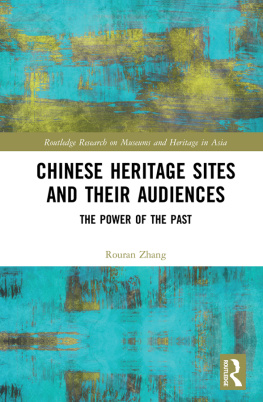
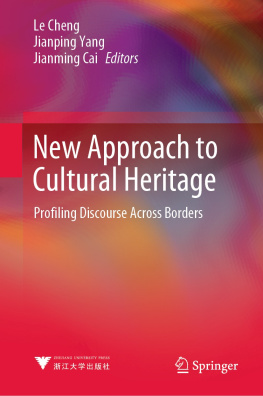
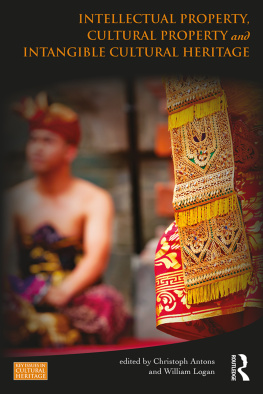
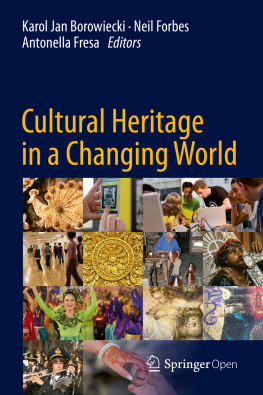
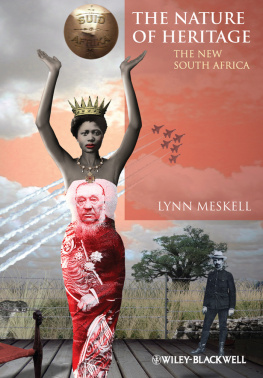




 The paper used in this publication meets the requirements of the American National Standard for Information SciencesPermanence of Paper for Printed Library Materials, ANSI Z39.48-1992.
The paper used in this publication meets the requirements of the American National Standard for Information SciencesPermanence of Paper for Printed Library Materials, ANSI Z39.48-1992.